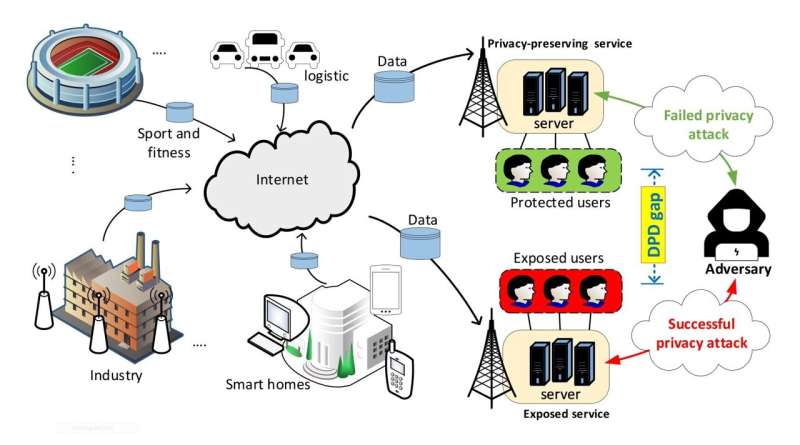February 21, 2022 feature
Study shows that online privacy has become a cause of inequality

As information and communications technology (ICT) systems proliferate, it has become essential for the privacy of users to be considered and safeguarded. While there are many existing ways to protect users' digital privacy, such as network security measures, cryptography and access control strategies, these methods are not implemented equally in all countries worldwide.
Researchers at University of Canberra in Australia have recently carried out a study investigating the factors that are defining this global digital privacy divide. Their findings, published in IEEE Access, highlight several social and demographic trends influencing how digital privacy measures are implemented worldwide.
"Our team has been researching digital privacy since 2016," Mohammad Abu Alsheikh, one of the researchers who carried out the study, told TechXplore. "This recent work was inspired by the inequality we noticed in the digital privacy protection provided to users based on their geographical location."
Over the past few decades, regions and countries worldwide introduced different policies and regulations aimed at protecting the digital privacy of internet users. These include, for instance, the General Data Protection Regulation (GDPR), which protects the privacy of users in countries within the European Union (EU), and the California Consumer Privacy Act (CCPA), which is only applicable to services and users in California.
These regulations force online platforms, services and tech companies, such as Google, Facebook, and Twitter, to follow specific rules that protect the privacy of their users. As a result of these rules, people in different places can experience online services in different ways, for instance, viewing cookie consent pop-ups in different formats or being presented with additional privacy-related notifications.
To investigate the socio-demographic patterns that define these differences in online privacy, Alsheikh, together with his colleagues Hamoud Alhazmi and Ahmed Imran, asked 776 participants in different countries to complete an online survey. These participants were sourced via manual referrals and through the Amazon Mechanical Turk (MTurk) platform.
"We then used statistical analysis tools to examine the data we gathered and found that the conducted survey research meets rigorous internal consistency reliability," Alsheikh said. "After that, we used statistical methods to study the relationship between the socio-demographic patterns of users and their perceived privacy protection."
The analyses conducted by this team of researchers yielded very interesting results, which emphasize the extent to which digital privacy has recently led to significant inequality. Most notably, they found that young users (15- to 32-year-olds) were more concerned about their digital privacy than older ones (33-year-olds and older adults).
In addition, their study showed that the ethnic background, occupation, and higher education level of users had a very minimal impact on the digital privacy divide perceived by users. In the future, the results gathered by Alsheikh and his colleagues could inspire the introduction of new strategies aimed at decreasing the digital privacy divide worldwide.
"We believe that digital privacy is a fundamental human right," Alsheikh added. "Accordingly, we call for unified digital privacy regulations that protect users regardless of their countries of residence. We will now work on extending the study to explore the connection between the digital privacy protection provided to users and their vulnerability to online disinformation campaigns."
More information: Hamoud Alhazmi et al, How Do Socio-Demographic Patterns Define Digital Privacy Divide?, IEEE Access (2022). DOI: 10.1109/ACCESS.2022.3144436
© 2022 Science X Network





















